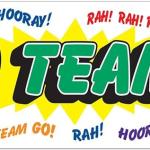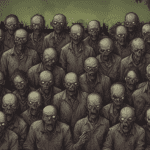In its ongoing efforts to examine the intersections between rhetoric, race, and religion, Memphis Theological Seminary along with the Dr. James L. Netters Professorship, will offer its first Rhetoric Race and Religion Institute from May 21-June 29. Below are the classes and dates for the Institute. All classes are one-week intensives from 9am-5pm Monday-Friday). Classes for non-degree seeking students is only $300.00. Limited housing options are available. For more information or to enroll, please email Dr. Andre E. Johnson at ajohnson@memphisseminary.edu
 Rhetoric of Race (May 28-June 1, 2012)
Rhetoric of Race (May 28-June 1, 2012)
Dr. Andre E. Johnson
In this course, by examination of theological and other religious texts, we will explore how people use language to construct race. We will place attention to the rhetorical nuisances that make up the body of “race work” along with an analysis of the meanings associated with racial categories, constructions and assumptions.
*Dr. Johnson will teach this class in conjunction with community activists that form the Race and Reconciliation class at the Memphis School of Servant Leadership. We will hold the class at Caritas Village.
The Rhetoric(s) of the Black Church: Sex Religion and HIV/AIDS (June 4-8, 2012)
Dr. Christopher House
In this course, we will engage in rhetorical investigations, discoveries, analyses, evaluations, and critiques of representative samples of religious rhetorics from Christian (Protestant) religious leaders of African descent as we seek to identify and understand the rhetorical strategies, underpinnings and justifications of pastoral communication surrounding the HIV/AIDS crisis that disproportionally affects people of color.
Using Media in Ministry (June 25-29, 2012)
Dr. Sean Connable
For many churches, the desire to meet the needs of contemporary, mediated society grows ever more important. Mediation, and its products, however, are not without their inherent problems. This course focuses upon exploring the rhetoric and effects of mediated society, and the philosophical and theological implications that rhetoric has on the faith. Television, the internet, social media and technology has opened us up to a world of infinite choice… how does the church live within this world when it still promotes one choice as an absolute? What are the implications of coexistence? What are the potential pitfalls?

















